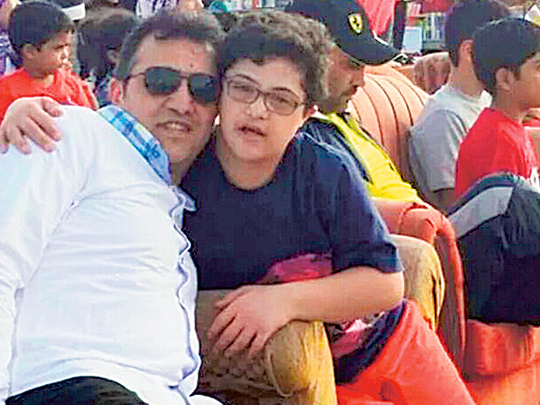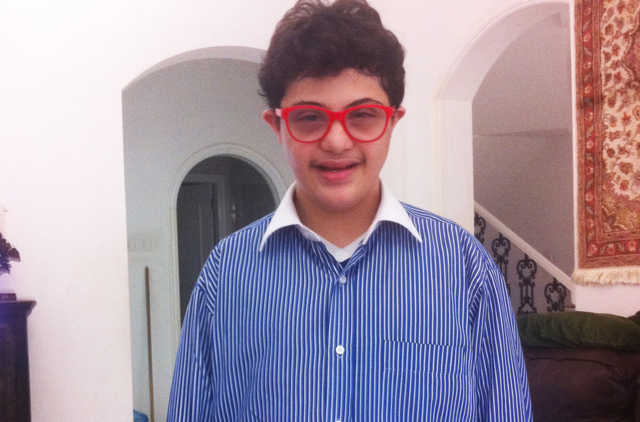
“Having a child with special needs is not the end of the world,” says Adham Assad, a Lebanese national based in Dubai.
His son, Mohammad-Taan Assad, is 12 years old and has Down Syndrome. The World Health Organisation (WHO) defines it as a disability caused by the presence of extra genetic material in chromosome 21. The additional material affects physical and mental development.
Assad said: “I feel lucky to have him in our lives. Parents of children with special needs should know how to treat them, then everything will become easier. I am not saying that our life is normal, like other families, but we have to deal with it in a normal way.”
Mohammad-Taan attends classes at the Al Noor Training Centre for Children with Special Needs in Al Barsha area, Dubai. The centre helps individuals with special needs achieve their highest potential.
Adham said: “He is coping with the courses very well and likes to go to the centre every day. He has a positive energy that he shares with people around him. He doesn’t struggle much, as his teachers are very helpful.”
For the sake of his child, Assad has given up certain luxuries.
He said: “I have chosen to live the remaining part of my life for my family and to support him. As a father with a full-time job, I’m usually busy all day. His mother has taken on the responsibility to look after him and help him with his education and they are both doing very well together.”
Salam Assad, Mohammad-Taan’s mother, works part time and spends the rest of the day with her son.
She told Gulf News: “The doctors told us about the diagnosis when Mohammad-Taan was born. But, he is very healthy; it’s just that his progess and development is slower than other children. Teaching him is not hard, it just takes time and is a slightly expensive process.”
At the centre, Mohammad-Taan is taught a variety of things, from the basics such as toilet training to courses like English.
Salam said: “They focus on each child and have individual training programmes based on their needs and how fast they can learn. They educate children about daily life and the things we need to survive. He’s been going there for four years and his progress has been perfect. When he joined the centre, he didn’t speak English. They helped him learn and now he’s able to communicate easily.”
When he joined the centre, both Salam and Adham met with the teachers to express what it was that they wanted their son to learn.
Salam said: “We met up and put certain goals together. We work together for a desired outcome for Mohammad-Taan. The teachers are strict and this reflects on Mohammad’s behaviour.”
When asked about the biggest challenges, Salam said: “Sometimes, people don’t understand what a child with special needs is trying to do or say. I believe this is our biggest challenge. But, our target with Mohammad-Taan is that he is happy. When you see him, it changes your opinion about the illness and disability. He vibrates positive energy and is always willing to learn and communicate. This is his source of joy.”
The centre has recently started teaching Arabic and Math. They have helped Mohammad-Taan with writing and basic calculations.
Salam said: “It’s all based on how much he is able to grasp. The children are allowed to learn from daily life experiences; it’s a practical process.”
Apart from education, Mohammad-Taan also participates in extracurricular activities. He has learnt how to swim and took part in a swimming competition where he secured second place. His parents are ready to face any challenges that life brings their way.









